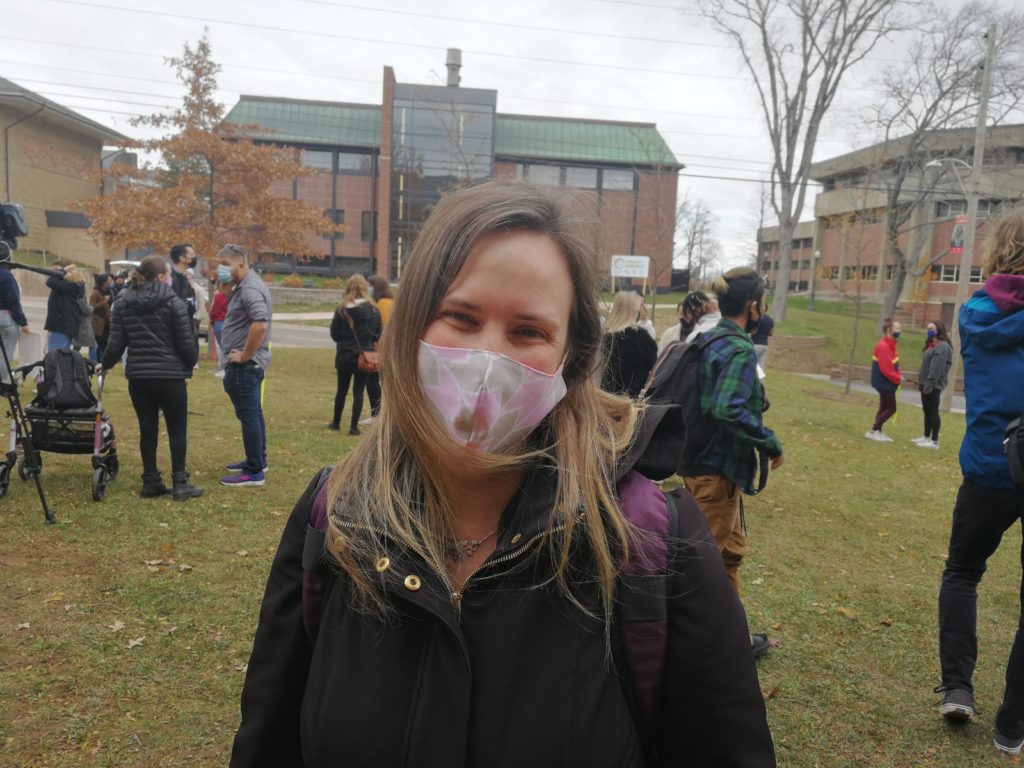
Tonight on 106.9FM at 6pm: CHMA Talks About Rape Culture.
For a preview of the show as aired on Tantramar Report, listen here:
For the full show, check out CHMA Talks to listen on demand.
This week’s topic on CHMA Talks is a heavy one. We’re talking about rape culture, with Mount Allison psychology professor and sex researcher Lisa Dawn Hamilton.
Off the bat, Hamilton acknowledges that sexual violence can happen to anyone, though, “the dominant cultural framing of sexuality does frame rape culture as men, or masculine people, who are taking advantage of the bodies of women, or feminine people,” says Hamilton.
Hamilton talks us through what rape culture is, and how it often starts in something as simple as how different genders are represented in traditional and popular culture.
Having simple, one or two dimensional female characters in movies and tv shows might seem like an innocuous problem with our pop culture and media, but it has the rather sinister effect of dehumanizing women on a mass scale.
The dehumanizing effect is real, and even used as a tool in some situations, says Hamilton.
“In war, for example, the first thing to do is to dehumanize the enemy, so that they are objectified,” says Hamilton. “These are tactics that are used intentionally in fields like war, that are than applied to how we represent women in media.”
“We dehumanize them, we objectify them, we focus on the way they look as their only value. And then we wonder why people treat them as though they’re objects?”
And then there’s the way we raise kids, often socializing them along gender lines established early, creating the gaps in knowledge and understanding that will later lead to rape culture.
“We socialize girls to be nice and to constantly worry about other people’s feelings,” says Hamilton. “And we don’t give that same sort of empathy education to boys. We don’t tell them to think about the feelings of the person that they’re punching, for example. That’s less likely to happen with boys. And the research shows that girls are more constantly monitored in their social interactions than boys, as they’re being raised.“
This gap in empathy education between boys and girls can lead to painful, and dangerous situations in adult life.
“What often happens in situations, if we’re talking about men and women,” says Hamilton, “is men are not aware of what’s going on emotionally for that woman, because they’ve never had to think about the feelings of women and girls growing up. And so the woman thinks that she’s very clearly conveying, ‘I’m not interested, please leave me alone.’ And the men are not picking that up, because they haven’t been taught what the signals are that mean ‘no’, if someone’s not explicitly saying ‘no’. “
Tune it to CHMA Talks Thursday night at 6pm to hear more from Hamilton on the topic of rape culture. You can also listen on demand here.
You can also hear more from Lisa Dawn Hamilton in her podcast and radio show, Do We Know Things, which airs on CHMA on Tuesdays at 9pm. “I wanted to start a podcast talking about all the things maybe we believe about sex that aren’t correct,” says Hamilton. It turns out even a sex researcher can be surprised with the truth about sex. “I was realizing even things I thought were true, were not actually true once I looked into them,” says Hamilton.
Hamilton also has a hand in a second podcast project, This is Fine: A Podcast About Stress, Burnout, and Resilience, which airs Saturdays at 4pm on CHMA. One of Hamilton’s classes took on the podcast as a project, with each student choosing a topic related to stress, burnout, and resilience. The show covers everything from the positives of stress, to trauma, to how to build resilience from stress, says Hamilton.















